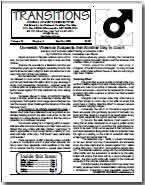 Getty Images
Getty Images
When K.J. Wiemer got married in the 1990s, he didn’t think he was becoming a husband. Rather, he says, he saw himself as “one of two 20-something professionals living together, who were now entering the phase of ‘officially’ living together.” Once in their 30s, however, and with two children, Mr. Wiemer and his wife realized that their roles had to change. “We sat down and decided together that I, as a lawyer, was likely to make more money,” he says. “So I stayed working, and my wife stayed at home with the kids.”
But the new arrangement backfired. Mr. Wiemer says that he felt sheepish about asking his wife to “do something as antifeminist as doing the dishes or the laundry.” Even as he grew resentful of her and unsure of his own duties as a husband, his kids, he says, were his “total joy.” They remain so, though the couple divorced in 2001 with joint custody of their children, now 13 and 15. Mr. Wiemer has not remarried.
Among a growing number of today’s men with children, Mr. Wiemer’s story is not unusual: Adrift as they may be in their role as mates, they are proving themselves to be rock-solid fathers. Even a casual observer of American family life knows that dads now drive kids to more doctors’ appointments, preside over more homework assignments and chaperone more playdates. Research confirms the rise of co-parenting. A recent U.S. Census Bureau report found that 32% of fathers with working wives routinely care for their children under age 15, up from 26% in 2002. Popular culture has noted the trend, too. Involved regular-guy dads are now commonplace in commercials. In one AT&T ad, a dad diapers his baby while talking sports on his phone with a buddy.
Whether it is because today’s men were raised amid the women’s movement of the 1970s, or because they themselves experienced the costs of that era’s absent fathers, there is little question that the age of dads as full partners in parenting has arrived.
“Fathers are no longer seen as just providers or occasional babysitters, but as actively engaged in their children’s emotional and daily lives, down to their routine care,” says Lauren Rinelli McClain, an assistant professor of sociology at Savannah State University. She is one of more than 30 researchers and policy makers who will present papers at a conference on “Fathers and Fathering in Contemporary Contexts” later this month at the National Institutes of Health in Bethesda, Md.
The subject is a fast-growing area of research. One recent study found that not only are men’s personal identities increasingly linked to being fathers, but so is their health. In a paper presented in early May at the Population Association of America’s annual conference, researchers from Ohio State University reported that more paternal involvement was associated with decreases in depression, substance abuse and risky behaviors for low-income fathers. It also improved their self-reported physical health.
Having an involved dad is also good for kids. In a study to be published in several months, Randal Day, director of the Family Studies Center at Brigham Young University, measured children’s physiological responses when their fathers forgave them for a misdeed. The results showed substantial decreases in the children’s overall anxiety. “We’re finding that it’s not the outings or fishing trips but fathers’ steady emotional connection that makes the most substantial difference to their children,” says Mr. Day.
Even as men have made great strides as fathers, however, they can find themselves rudderless as spouses. “We’re getting a new cultural script for a ‘new dad’ but not for a ‘new husband,’ ” says W. Bradford Wilcox, director of the University of Virginia’s National Marriage Project. “That married people with children now often refer to themselves as a ‘stay-at-home mom’ or ‘stay-at-home dad’ instead of as ‘wife’ or ‘husband’ signals that we now prioritize parenthood over marriage itself.”
As men try to be better dads, they are running into the familiar difficulty of balancing kids, career and marriage—a problem that women have been trying to manage since the 1970s. With men as with women, it is marriage itself that often gets short shrift.
“Though it is changing, men are still culturally trained to be independent, not needy or attentive to others,” says Scott Coltrane, professor of sociology and dean of the College of Arts and Sciences at the University of Oregon. They are stepping up in fatherhood, but “in marriage, men in general have a harder time with sustained intimacy.” Mr. Wilcox’s recent research indicates that a primary reason new mothers report marital dissatisfaction is that they are spending less time with their husbands than they did before the baby. Other studies show that, with the arrival of children and new family duties, the male response seems to be: There’s only so much one guy can do.
“Men are experiencing what women experienced when they first entered the workforce in record numbers—the pressure to ‘do it all in order to have it all,’ ” according to a report released by the Family and Work Institute last year. It also found that the acceleration in “work-family conflict” has been particularly conspicuous among fathers in two-income families, with 60% saying it was an issue in 2008, up from 35% in 1977. That figure remained relatively stable for women, at 41% in 1977 and 47% in 2008. As men adjust to contemporary family life, Mr. Coltrane speculates that American culture may be on its way to phasing out the gendered roles of “husband and wife” and “father and mother” and replacing them with the functional roles of “spouse and parent.”
The connection of marriage to parenthood also seems to be changing. Marriage rates are at historic lows, and a new report from the National Center for Family and Marriage Research shows a small but definite rise in the decoupling of fatherhood and marriage. According to the study, the proportion of men entering their first marriage with two or more children in the early 2000s nearly doubled over the previous decade.
“This indicates, at least for a growing minority of men, that marriage is a greater economic and cultural capstone than fatherhood,” says Susan Brown, the center’s co-director. “They’re saying, ‘I need to complete my education and find a stable job before I get married, but not before I have a child.’ “
For children, this is not an encouraging trend: Fathers who are married to their children’s mothers are, statistically, the most active caregivers. Still, it appears that today’s dads often remain involved with their children even if they do not live with the children’s mom or have a strong emotional connection to her.
In a 2010 report published by the Future of Children, a joint project of Princeton University and the Brookings Institution, researchers found that “involvement [with their children] is high even among fathers who are not in a romantic relationship with the mother.” Even more striking, the study went on to highlight, “a high proportion of all unmarried fathers say that they want to be involved in raising their child, and the mothers say they want the father’s involvement.”
As for Mr. Wiemer, he says that his steady, amicable relationship with his ex-wife has been essential to child rearing. After years of keeping his home a zone exclusively for himself and his kids, however, he has finally decided to ask his girlfriend to move in with him. His daughter, he says, is not happy about it and has elected to stay with her mother for the time being. “She’s angry, probably scared of being replaced, and she’s allowed to have those feelings,” he says. “But she also knows that I love her, I’m here to talk whenever she wants to, and I’m never going anywhere.”
—Ms. Thomas is the author of “In Spite of Everything: A Memoir.”
A version of this article appeared May 12, 2012, on page C3 in the U.S. edition of The Wall Street Journal, with the headline: Are Dads the New Moms?.
Source: Are Dads the New Moms? (http://online.wsj.com/article/SB10001424052702304451104577392261536405038.html)


